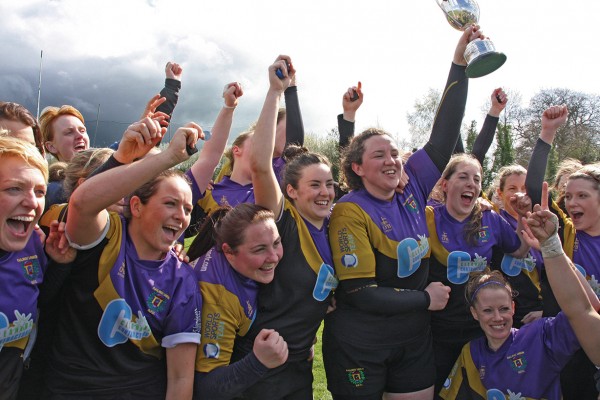
NewsFour went to meet Railway Union’s Director of Rugby, John Cronin, a man with pure passion for the sport, and boundless enthusiasm about growing the club and increasing participation in the game.
He remarked wisely how, “rugby is such a simple game. It is the laws that may seem complicated.”
To the lay person and the raw eye, rugby may look like the roughest and most violent of games. On TV we see elite players – getting increasingly stronger, faster, and larger – colliding into each other at warp speeds, but down at club level, matters are quite different.
The moment Webb Ellis picked up that football in Rugby town in 1823, something wonderful was born, for he did not pick it up and run at someone, he ran around them. Changing the ball from the feet to the hands made it possible to explore some other skillset, and invited a range of participants with a wide range of abilities.
It was not long before a game was developed where men of all sizes and speeds were needed. Today you will witness the genius of the original idea, as participants can range from strong bedrocks to speed merchants. Then there are the kickers and the tacklers, the jumpers and the catchers.
Positions range in needs from all shapes and sizes, and so rugby invites the insight that it truly is the universal game. Anyone can play rugby, because no matter who you are, you are needed somewhere in a team.
And that is the appeal that started shining its light as NewsFour talked to Cronin. Although a game where the tackle is the main method of defence, there is such a huge respect evident in the atmosphere of rugby; witness giants deferring silently and obediently to diminutive referees at international level. You will see the same template all the way down the rugby ranks to underage level.
You will also see respect from each team member for each other, as each player is a vital cog in the wheel for the team’s success. A prop forward is as vital as that glamourous back scoring his blazing try. In fact, he or she is probably more important. If the dirty work doesn’t get done, the team doesn’t shine. As Cronin reminded us, “football can have a Maradona and win the World Cup with a weak team, but a rugby team can never do that. A rugby team needs everybody.”
Cronin went on to describe the essence of that in his club. “Rugby gives so much to all its participants, and there is great camaraderie.” Everyone it seems is wanted as much as needed. Cronin seems on a crusade to help anyone who wants to get involved and play rugby. Under his watch, Railway Union has broadened out from one senior team to seven senior sides. Along the way, the club has achieved 14 trophies in two seasons.
There are umpteen teams within the club, starting at the minis when boys and girls play together, all the way up to senior men and women’s level. If you were to visit the club on a Thursday you would see many teams training at the same time, giving their all and participating in something wonderful. The women’s firsts can often spar with the men’s thirds.
The women’s game has grown tremendously in recent years, and Railway now field three adult women’s rugby teams, not to mention underage levels of under-18 and under-15. Cronin remarked on the women’s game being, “very skilful; reminiscent of the men’s game in the 70s,” before the era of massive size gains. “The women’s game has a lot less injuries because it probably is so focused on skill.” And there is plenty of skill to burn in the women’s teams in Railway Union. Despite the game and the players being misrepresented lately in the national media, the Women’s 1sts and 2nds, and the Girls U18s, have all won trophies in the last two years.
The growth of the women’s game is also very impressive. According to Railway Union, there were at least 100 adult female players who joined in the last two years. On a national level, the Federation of Irish Sports estimated there were 3,277 women rugby players in 2012, up from an estimated 1,756 in 2006.
Last year, the Irish Women’s Rugby team won the Six Nations Championship and Grand Slam. They played in the World Cup in 2014 and overcame New Zealand to reach the semi-finals. There is no doubt that the success of that team will enrich the profile and participation rates of Irish women’s rugby.
Down at Railway Union, they are waiting to welcome the next players. The door is always open. The skill, the passion and the joy of sport awaits, regardless of age, gender or experience.
“There is a real club togetherness,” Cronin said, “rather than ‘teams.’” Despite recent mischievous writings about the club and its members, they march on, dignified and ablaze with ambition, their heads held high.
By Ferg Hayden

